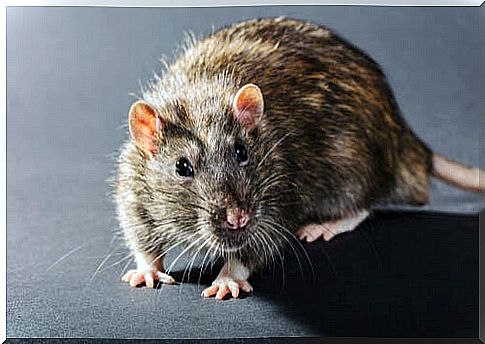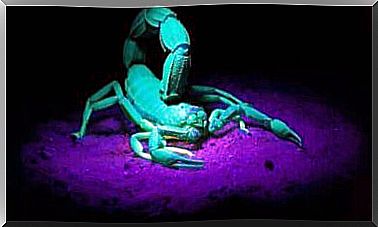Can Viruses Alter Behavior?

Did you know that viruses can alter the behavior of animals? That’s right! In the course of their evolution, viruses have acquired various adaptive mechanisms capable of ensuring their transmission from host to host. One of these consists precisely in the alteration of the behavior of living organisms.
Many arthropods act as vectors of transmission: ticks, fleas, mosquitoes … Transmission occurs when the vector feeds on blood (such as bloodsucking) or other substances such as lymph (in the case of plants) that have been infected with an agent pathogen, which could be represented by bacteria, parasites or viruses. Subsequently, the vector stings other animals or humans, which act as final hosts.
In addition to affecting their own vectors, numerous viruses cause infections in the central nervous system (CNS) of animals themselves, causing disturbances in the host’s behavior.
In the following lines we will make some observations on some examples of strategies that viruses adopt to favor their subsequent transmission.
Viruses that modify the behavior of arthropod vectors
1. The tomato spotted blight virus. This virus belonging to the Bunyaviridae family , which affects crops, alters the feeding behavior of its vector, thrips (insects of the order Thysanoptera ).
On the one hand, infected males feed more frequently than those who have not been infected. On the other hand, this virus stimulates salivation up to three times as much. All this leads to an increase in the probability of inoculation of the virus in the tomato.

Other viruses belonging to this viral family, such as La Crosse (responsible for La Crosse encephalitis) and Rift Valley fever virus, cause an increase in the frequency of bites by vectors.
2. Dengue virus. Aedes aegypti is the vector mosquito of flaviviruses responsible for diseases such as yellow fever, dengue fever and Zika fever, in both animals and humans.
Females use their olfactory ability to find the best place to lay their eggs. The virus affects their central nervous system, altering their olfactory process and expanding the range of spatial possibilities for oviposition and colonization of new niches. As a result, the virus manages to spread to other areas.
As we can see, therefore, this ability to change the behavior of the vector is preserved in these viruses as a mechanism of evolution and adaptation that allows to improve their transmissibility.
Viruses that modify behavior through the CNS
Disturbances in the behavior of sick animals are associated with changes involving weight, temperature, taste preference, food and water ingestion, and sleep patterns. Viruses have been observed to play a direct role in these behavioral changes. For instance:
- In baby mice, the Borna disease virus causes them to have an abnormal preference for the taste of salt.
- Canine distemper virus induces weight loss in dogs, while 5-10% increased their weight by 300% in infected rats.
- Alterations in the sleep pattern caused by infection with the influenza virus in mice and the immunodeficiency virus in felines have been observed.
Viral infection can damage cognitive abilities directly or indirectly
The direct pathways: include lesions of neuronal cells caused by the replication of the virus itself or by the fact that its components cause cell lysis: rabies virus, Herpes simplex virus .
Indirect pathways: the virus causes damage to various cells by means of neuroenvironmental alterations or as a result of host immune responses to infection. Multiple sclerosis, an autoimmune disease, has been suggested to begin with a persistent viral infection.
Viruses associated with neurological changes
Influenza A. Mice infected with this virus (influenza virus) show changes in their behavior that are associated with anxiety and cognition. This phenomenon is due to changes in the expression of genes that regulate synaptic functions in the amygdala, hypothalamus and cerebellum.

Rabies virus. As you already know, this virus causes drastic changes in the behavior of infected hosts. A study published in Scientific Reports found that a region in the glycoprotein of this virus acts by inhibiting neurotransmitter receptors in the CNS.
Viruses that affect other organs
The Seoul virus (hantavirus). The source of this virus is constituted by rodents of different species (in which it does not cause disease). They can pass it on to people through saliva and feces, causing hantavirus pulmonary syndrome in them.
In a study conducted in Norway in rodents it was observed that infected males exhibited much more aggressive behavior than those who had not been infected.
The presence of this virus in the lungs, kidneys and testes could be the reason for this alteration in behavior. Additionally, aggression prompts them to bite more, which could help spread the virus through wounds.
Viruses can alter behavior
As we have seen, viral CNS infection is capable of causing neurological abnormalities, as well as altering behavior. Consequently, we can say that viruses, in a certain way, can alter behavior.
A better understanding of the effects of chronic or persistent viral infection in the CNS will help us learn more about how the molecular mechanisms associated with behavioral disorders work, including in animals.









